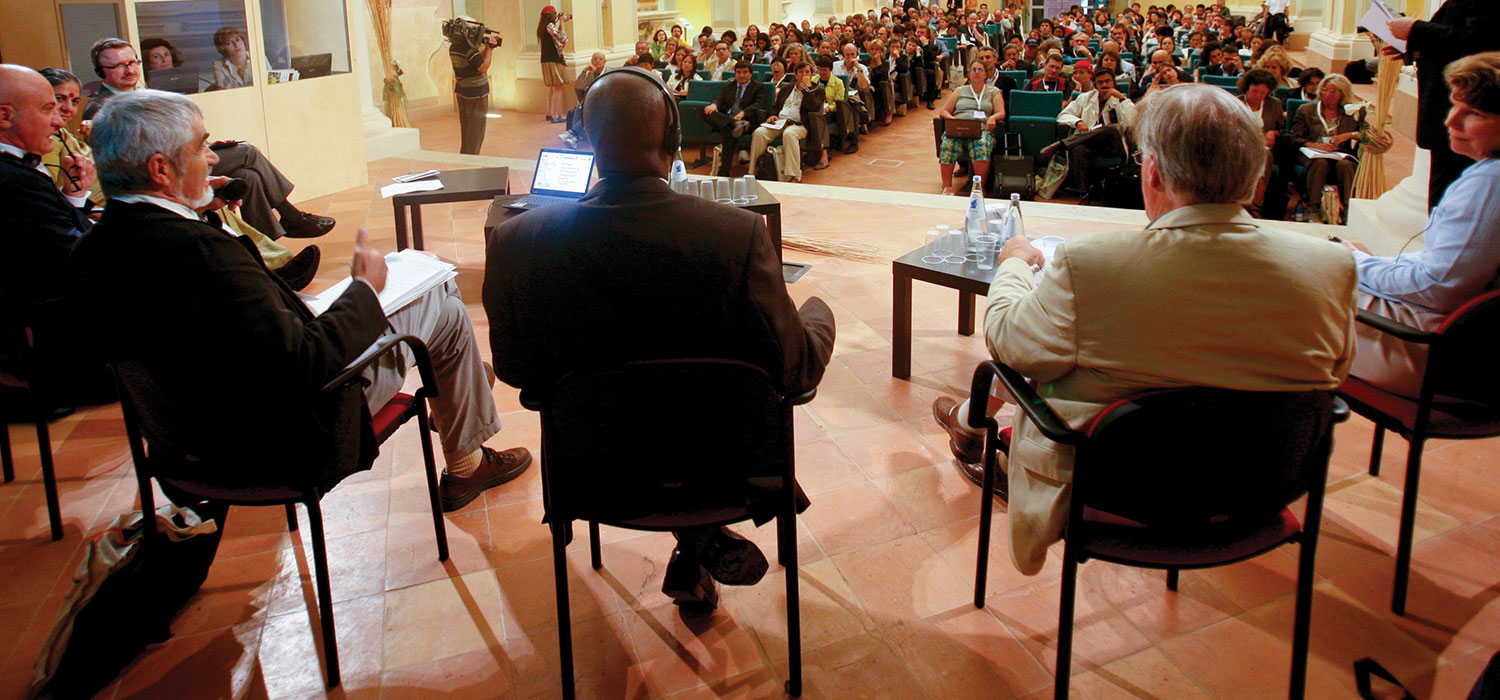
The Organic World Congress of IFOAM - Organics International is held every 3 years in a different country. The aim of the congress and related activities (pre-conference, General Assembly, side-events and organic exhibition) is to share experiences, innovations and knowledge about the organic world, while giving the organizing country global visibility.
The Congress provides inspiration and an extraordinary momentum for all those who take part. It is the leading event for the development of the organic sector worldwide. See below a timeline with our past and upcoming Organic World Congresses.

9 - 11 November 2017
India Exposition Mart Ltd.
Plot No. 25,27,28,29, KnowledgePark,
Greater Noida - 201306 Uttar Pradesh, India
indiaexpomart.com
India won the bid to host the 19th Organic World Congress of IFOAM - Organics International at a very critical time in its agricultural history. The organic food movement has grown four times in the last three years. The OWC will no doubt play a critical and unprecedented role in supporting the Indian organic farming movement and tilting India's agriculture policy firmly and irrevocably in the direction of organic.
At the same time, it will enable solidarity among organic farmers and organic farming associations across continents, supporting the efforts of the Intercontinental Network of Organic Farming Organisations (INOFO). For these reasons, the theme of the 19th OWC is 'An Organic World through an Organic India.'
India has been in the business of agriculture for over ten thousand years. The earliest signs of agriculture are found in the ruins of Mohenjo-daro and Harappa. There are several texts and manuals written over this long period on the growing of crops and their safeguarding from disease. This sustainable tradition was abandoned in some areas of the country in the mid-60s with the advent of the Green Revolution. In these areas, most notably Punjab, Haryana, and Uttar Pradesh in the north, and some pockets in south India, indigenous farming methods based on organic inputs gave way to farming with chemical fertilizers, pesticides and seed purchased from corporations.
The organic farming movement in India regained its strength and momentum in the mid- 80s, as the negative impacts of chemicals, monocultures, excessive irrigation, and high cost inputs came home to roost.
Today more than half a million organic farmers have turned to farming methods that transcend both modern and traditional techniques to produce a state-of-the-art profession that radically improves on both. The OWC will focus on showcasing the innovative and path-breaking work of the organic farmers of Asia, Africa, and South America to the rest of the world, with a strong emphasis on the pioneer: India.
With so many organic farmers expected to be present on this occasion, naturally they will be making a significant number of presentations themselves.
This Congress also expects to see fruitful interactions between scientists from across the world and agricultural research agencies and institutions of the Government of India, and several State Governments as well.
© IFOAM - Organics International 2017